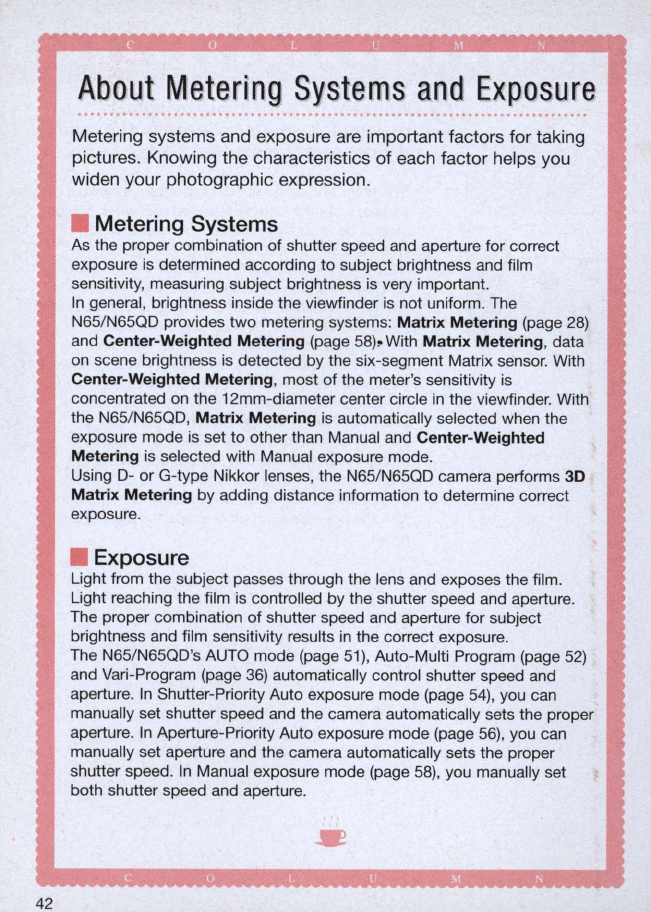
42
U M ,
About
Metering
Systems
and
Exposure
Metering systems and exposure are important factors for taking
pictures. Knowing the characteristics
of
each factor helps you
widen your photographic expression .
• Metering Systems
As the proper combination
of
shutter speed and aperture for correct
exposure is determined according to subject brightness and film
sensitivity, measuring subject brightness is very important.
In
general, brightness inside the viewfinder
is
not uniform. The
N65/N65QO provides
two
metering systems: Matrix Metering (page
28)
and Center-Weighted Metering (page 58). With Matrix Metering, data
on scene brightness is detected by the six-segment Matrix sensor. With
Center-Weighted Metering, most
of
the meter's sensitivity is
concentrated on the 12mm-diameter center circle
in
the viewfinder. With
the N65/N65QO, Matrix Metering is automatically selected when the
exposure mode is set to other than Manual and Center-Weighted
Metering is selected with Manual exposure mode.
Using 0- or G-type Nikkor lenses, the N65/N65QO camera performs 3D
Matrix Metering by adding distance information to determine correct
exposure .
• Exposure
Light from the subject passes through the lens and exposes the film.
Light reaching the film is controlled by the shutter speed and aperture.
The proper combination
of
shutter speed and aperture for subject
brightness and film sensitivity results
in
the correct exposure.
The N65/N65QO's AUTO mode (page
51)
, Auto-Multi Program (page
52)
and
Vari
-Program (page
36)
automatically control shutter speed and
aperture.
In
Shutter-Priority Auto exposure mode (page
54)
, you can
manually set shutter speed and the camera automatically sets the proper
aperture.
In
Aperture-Priority Auto exposure mode (page
56),
you can
manually set aperture and the camera automatically sets the proper
shutter speed.
In
Manual exposure mode (page
58)
, you manually set
both shutter speed and aperture.
COL
U M


















